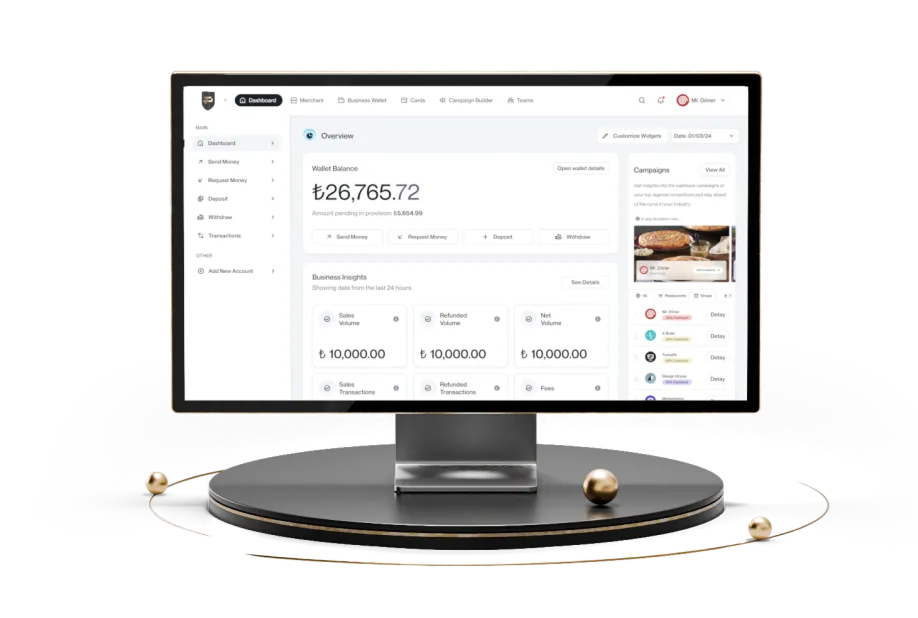A Guide to Compensation Package for Those Who Want to Know Their Privileges
Employee benefits are designed to ensure that employees feel satisfied with their salary and the additional perks they receive at work. These benefits help increase employee productivity and strengthen their loyalty to the company. In this Papel Blog post, we will cover what employee benefits are, the difference between mandatory and flexible benefits, and their impact on employees.
What Are Employee Benefits?
Employee benefits refer to the additional advantages and support companies provide their employees beyond their salary. These benefits boost motivation, job satisfaction, and company loyalty. While some benefits are legally required, others are provided at the employer's discretion.
For example, social security and health insurance are mandatory benefits, but vacation allowances or technological devices are optional. Many companies today offer a wide range of benefits, including private health insurance, meal allowances, transportation support, vacation packages, birthday leave, gym memberships, online platform subscriptions, gift cards, performance rewards, additional maternity and marriage leave, personal development allowances, fuel cards, technological devices, life insurance, employee discounts, corporate events, company cars, and company phones. Of course, many of these fall under the category of flexible benefits and are not mandatory.
Are Employee Benefits Mandatory?
The obligation to provide employee benefits depends on legal regulations and employment contracts. While some benefits, such as social security and health insurance, are required by law, others are at the employer's discretion.
If specific benefits are stated in the employment contract, they become mandatory. For instance, if an employer commits to providing food assistance twice a year in the contract, they are legally required to fulfill this promise. However, benefits not explicitly mentioned in the contract are usually optional and depend on the employer's decision. Therefore, it is important to carefully review the terms related to benefits before signing an employment contract.
What Are Mandatory Employee Benefits?
In Turkey, certain employee benefits are legally required to protect employees' fundamental rights and job security. Employers are obliged to provide these benefits, which include:
Social Security Insurance
Employers must provide health insurance to their employees. In Turkey, working without insurance is illegal and has legal consequences for the employer and the employee. It is the employer's responsibility to pay social security premiums regularly. Hiring uninsured workers violates Law No. 5510 on Social Security and General Health Insurance and may result in penalties.
Unemployment Insurance
Unemployment insurance is designed to provide financial support to employees in case of job loss. Employers are required to pay unemployment insurance premiums for their employees.
Medical Leave
Employers must grant employees medical leave in cases of illness. Regulating and providing paid sick leave is mandatory when employees need time off due to health conditions.
Severance Pay
Severance pay refers to compensation paid to employees in cases of dismissal or retirement. Employers are legally required to pay severance benefits to eligible employees.
Paid Leave
Employees are entitled to a certain amount of paid leave for rest and personal needs. Employers are required to grant employees paid vacation as per labor laws.

What Are Flexible Employee Benefits?
Flexible benefits are additional perks that employees can choose based on their personal needs and preferences, going beyond standard benefits. These benefits improve employees' quality of life, leading to a happier and more productive workforce.
Flexible benefits include private health insurance, meal vouchers, transportation support, gym memberships, educational assistance, and extra vacation days. Let's take a closer look at the different types of flexible benefits:
Private Health Insurance
This benefit provides employees and their families additional health coverage, covering medical expenses beyond basic social security. Companies may offer flexible options, allowing employees to choose the most suitable insurance plan. Although basic health insurance is mandatory, the employer determines private health insurance coverage.
Meal Vouchers
Employers may provide a meal allowance, typically through prepaid meal cards. This is particularly beneficial for employees working at companies without in-house cafeterias. Law No. 4857 on Labor in Turkey does not mandate meal allowances, so they fall under flexible benefits.
Transportation Support
Since not all employees live close to their workplace, transportation expenses such as fuel or public transport fares can create an additional burden. Employers may choose to cover these extra commuting expenses.
Educational Support
Many companies offer financial assistance for professional training, language courses, or certification programs. This encourages continuous learning and career growth.
Flexible Working Hours and Remote Work
Flexible work arrangements help employees maintain a better work-life balance. With technological advancements, many companies offer remote work opportunities, increasing job satisfaction.
Travel Perks
Companies may offer discounts or additional leave for business or personal travel.
Gym Memberships
Some companies provide gym memberships or wellness programs to support employees' physical health.
Gift Cards
Employers may provide gift cards or digital vouchers, allowing employees to shop freely within a set budget.
Extra Vacation Days
Additional paid leave days may be granted to help employees balance work and personal life.
How Can Employees Request Benefits?
Employee benefits play a significant role in motivation and job satisfaction. The process of requesting benefits depends on employment contracts and company policies.
If your employment contract specifies benefits such as meal or transportation allowances, your employer must provide them automatically. However, if certain benefits are not included in your contract, you may need to discuss your needs with your employer.
If multiple employees share the same benefit request, submitting a collective request may increase the likelihood of approval. Some companies also offer flexible benefits programs, where employees can select benefits based on their preferences. If your company does not have such a program, you may propose its implementation.
However, employers are not legally required to offer additional benefits beyond mandatory ones. Yet, presenting a clear and reasonable request may encourage them to take action.
Which Employee Benefits Are Tax-Deductible?
Employers can deduct certain benefits as expenses to take advantage of tax benefits. The eligibility for these benefits depends on current tax laws and regulations. Some common tax-deductible benefits include:
Meal Expenses
Employers can deduct the cost of meals provided to employees, including meal vouchers. A certain amount can be deducted from taxable income if provided through meal cards or meal checks. For example, in 2025, the daily meal allowance limit is set at 240 TL + 10% VAT.
Additional Employee Payments
Bonuses, commissions, and holiday allowances can be deducted as business expenses. Employers may also provide employees with gift cards or food packages during holidays, but these benefits are subject to tax regulations and limits.
Transportation (Commuting) Expenses
Employers can deduct commuting expenses if they provide a company shuttle service or cover public transportation costs for employees. In 2025, the tax-exempt daily commuting allowance is set at 126 TL.
Vehicle Expenses
Business-related vehicle expenses, such as fuel, maintenance, and leasing, can be partially deducted.
Are Employee Benefits Applied Equally?
According to Article 5 of Law No. 4857 on Labor, employers must treat employees fairly. This means they cannot discriminate without a valid and objective reason.
For example, benefits like meal allowances should be provided equally to all employees. However, position-specific benefits (e.g., providing a company phone to employees who need it for work) do not violate the equality principle.
In flexible benefits programs, employees may receive different perks based on their needs. While this allows for personalization, companies should still uphold fairness in core benefits.

